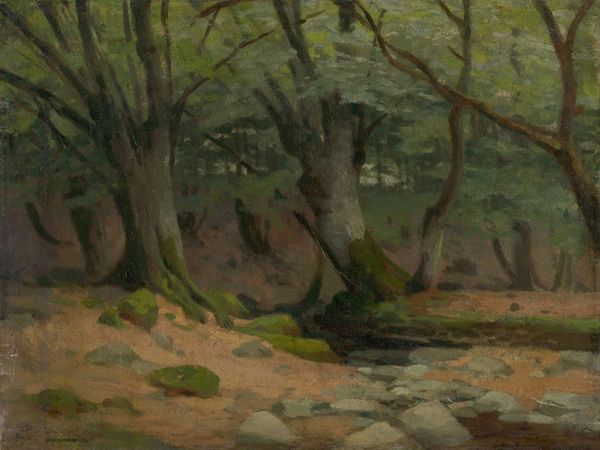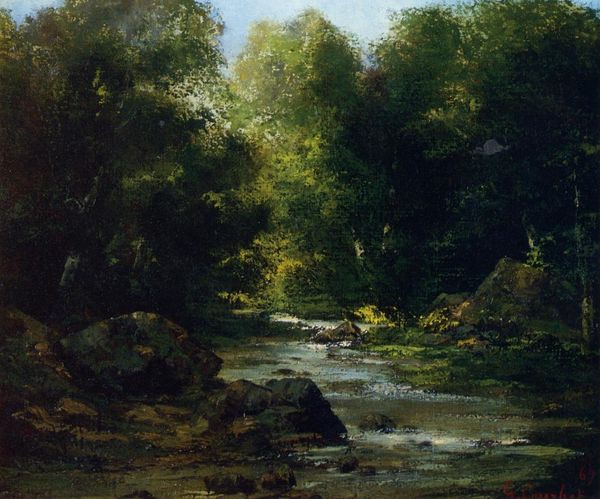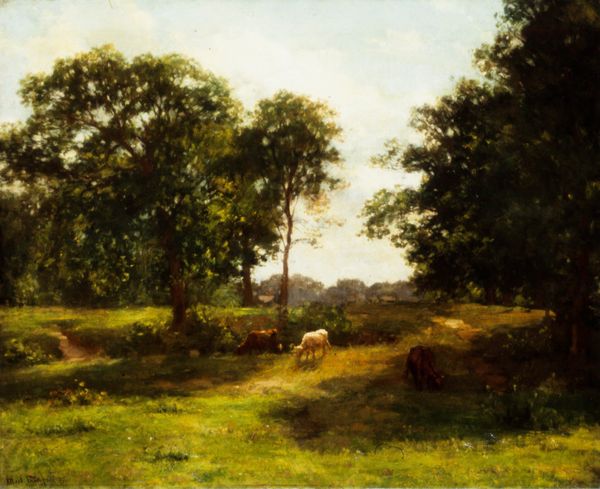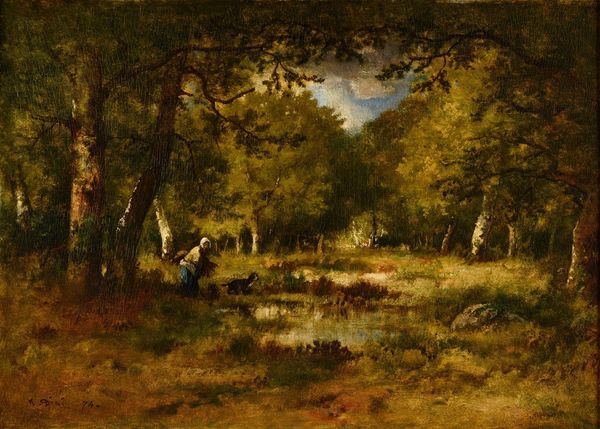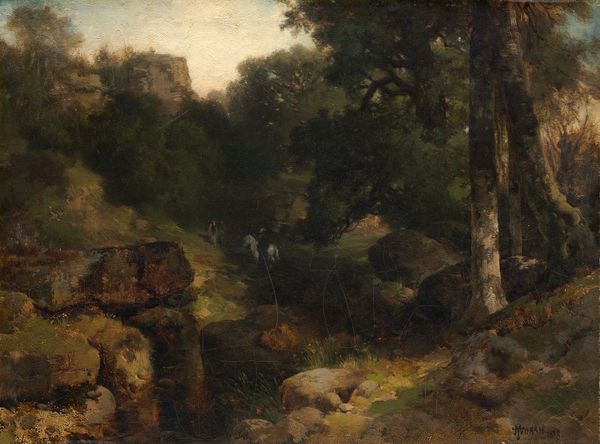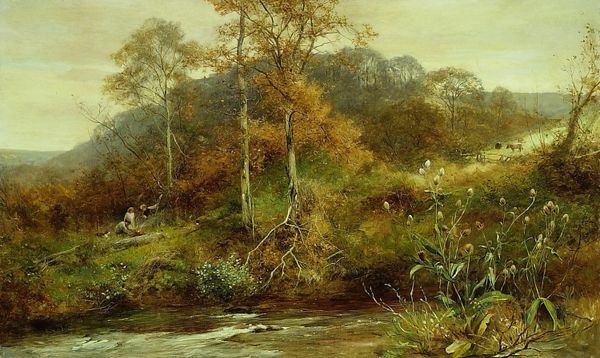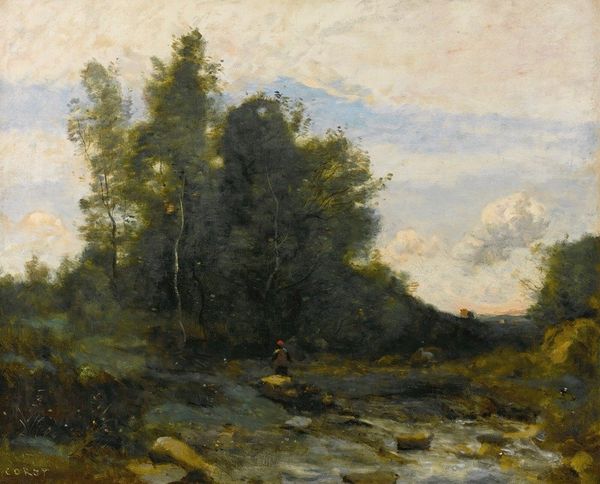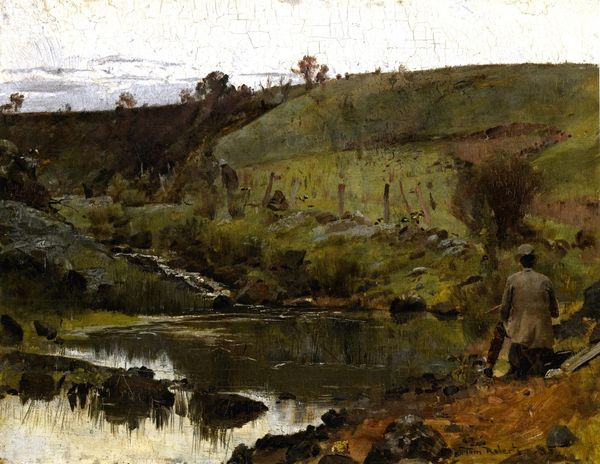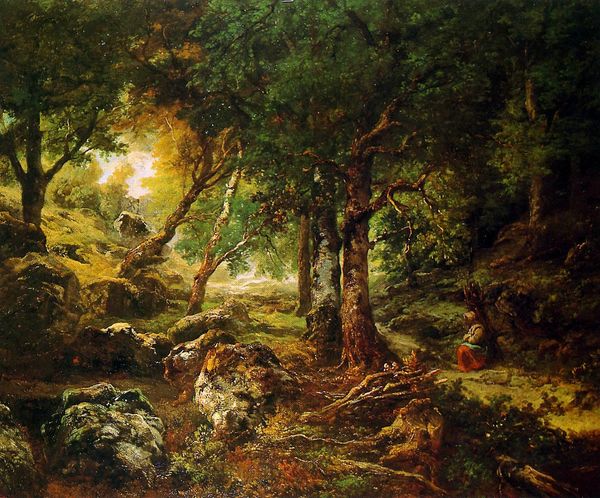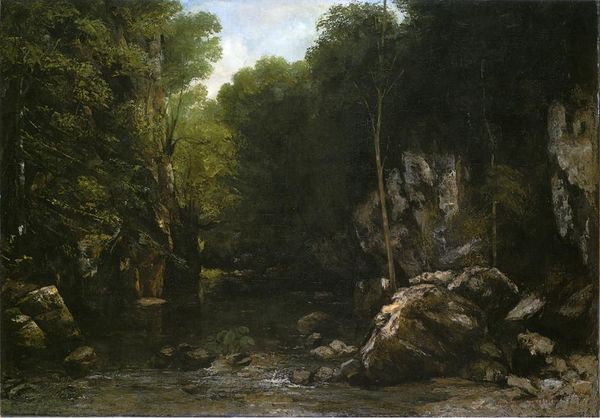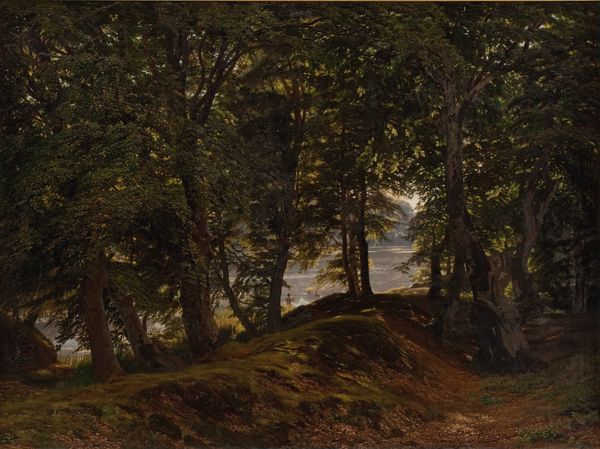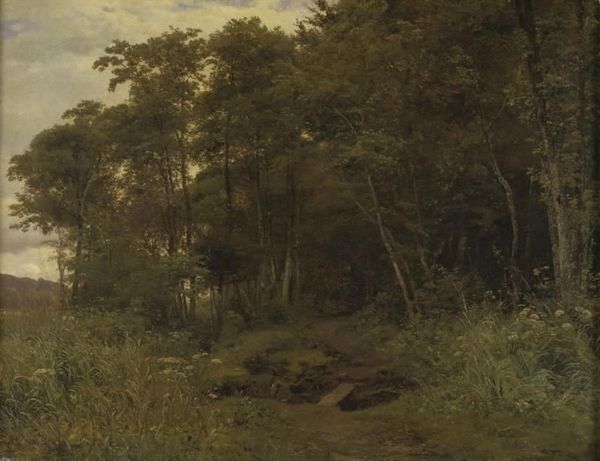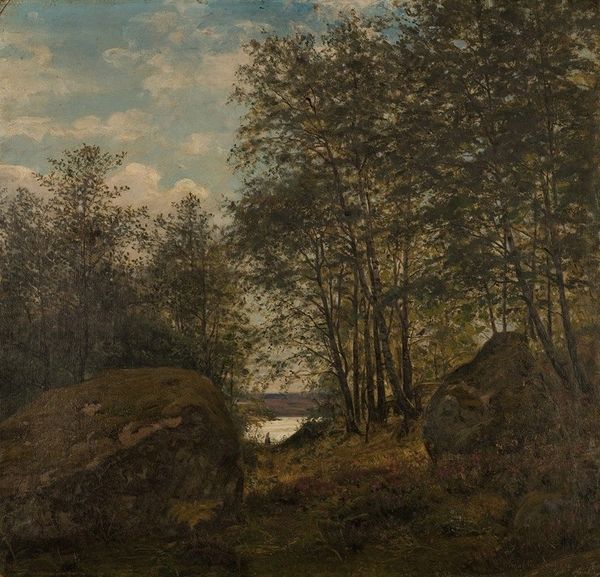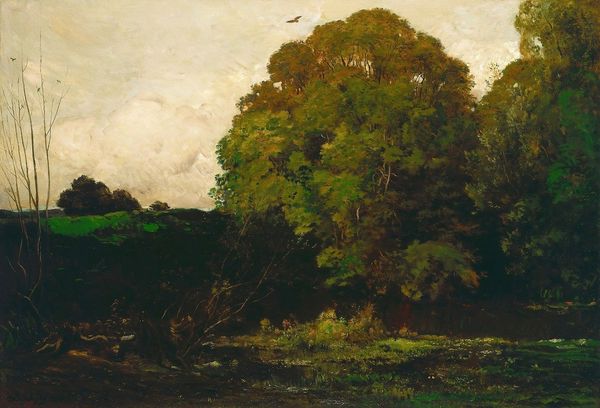
#
charcoal drawing
#
possibly oil pastel
#
charcoal art
#
oil painting
#
acrylic on canvas
#
underpainting
#
painting painterly
#
surrealist
#
charcoal
#
watercolor
Copyright: Public domain
Jules Breton painted this scene of Breton Laundresses at Douarnenez. Breton was known for his idealized depictions of rural life. This work, however, offers an opportunity to reflect on the intersection of gender, labor, and regional identity in 19th-century France. The image captures a group of women engaged in the physically demanding work of washing clothes outdoors. These women, situated in a specific region of France, represent a segment of the population often overlooked in mainstream narratives. As Breton once said, "In art, the most beautiful thing is the thought that vibrates in a simple soul." Consider the implications of portraying women performing manual labor in an era of industrialization. Does it celebrate their resilience, or does it romanticize their struggle? These representations often maintain traditional roles, sidelining narratives of female agency and resistance. Ultimately, this artwork invites us to consider the lived experiences of these women, prompting reflection on their historical context and the societal structures that shaped their lives.
Comments
No comments
Be the first to comment and join the conversation on the ultimate creative platform.
